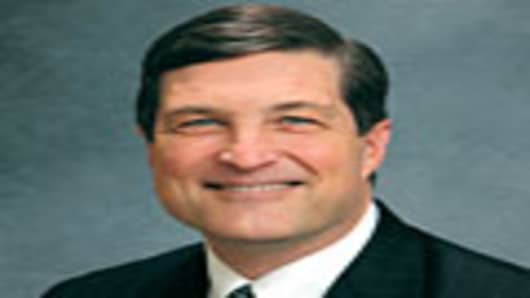Federal Reserve intervention to calm financial market panic runs a moral hazard risk of encouraging more reckless behavior and may make matters worse in the future, a top Fed policy-maker said.
Richmond Federal Reserve Bank President Jeffrey Lacker, in a telephone interview, also said saving troubled U.S. investment bank Bear Stearns was an "excruciating dilemma" that warranted a major expansion of the Fed's supervisory powers.
"The danger is that the effect of recent credit extension on the incentives of financial market participants might induce greater risk taking," Lacker said in prepared remarks to a business group on Thursday.
This "in turn could give rise to more frequent crises, in which case it might be difficult to resist further expanding the scope of central bank lending." Lacker spoke to a closed-door meeting of the European Economics and Financial Centre in London on Thursday.
A text of his speech was made available.
He said in the speech that market turmoil fell into two categories: non-fundamental episodes when rumors provoke runs on banks that are actually still sound, and strain caused when there is an actual decline in real fundamental asset quality.
"Instances of run-like behavior since last summer appear to be attributable to real fundamental causes, as do the broader financial market stresses," Lacker said.
Central bank lending to calm market disruption due to deteriorating fundamentals is a natural reaction for policy-makers, but may sow the seeds for trouble down the way.
"The expectations such actions engender could very well make future crises more likely," Lacker said.
The Fed and U.S. Treasury worked aggressively behind the scenes to ensure that Bear Stearns did not go under in March as lenders balked at extending it more credit.
The Fed promised up to $30 billion in emergency credit backstop to JPMorgan Chase to persuade it to buy Bear, potentially putting U.S. taxpayers' money at risk.
In an associated move not witnessed since the Great Depression, it also provided a cash lifeline to investment banks, which it does not directly supervise, by giving them access to its 'lender of last resort' discount window.
"I don't question the decision that was made. It was an excruciating choice, an excruciating dilemma, that they faced. But a system that puts us in that position needs some review," Lacker told Reuters by telephone from London.
"Our supervisory oversight and ability to constrain institutions that could put us in that situation needs to be better aligned. If an institution can put us in that position, we need to be able to prevent them from doing so little to ensure against such an outcome," he said.
The U.S. Treasury has unveiled a blueprint to modernize the country's regulatory framework and said on Wednesday the Fed and Securities and Exchange Commission, which currently regulates investment banks, were working together while these institutions had access to Fed cash.
"A broader question is just what are the new boundaries. And I think establishing that in a clear and credible way is another major challenge that we have before us," he said.
Lacker also made plain that regardless of the rights or wrongs of the Fed's emergency action, he believed it had already altered market expectations, and this was unwelcome.
"Have we seen the effects of this?...I think the movement in credit default swap spreads and risk premia on a range of institutions since mid-March suggests that we have affected market expectations.
"It is uncomfortable, because the scope of lending support is viewed by market participants as having been expanded, and we've not yet aligned our supervisory activities accordingly," he said.
The Fed is one of several supervisory agencies that monitor the nation's banking system, in particular the big bank holding companies.
Kohn said the Fed intends to send strong supervisory messages to senior bank managers -- "perhaps with more force and frequency than in the recent past" -- to make sure they do not again lose their focus on the importance of sound risk management.


